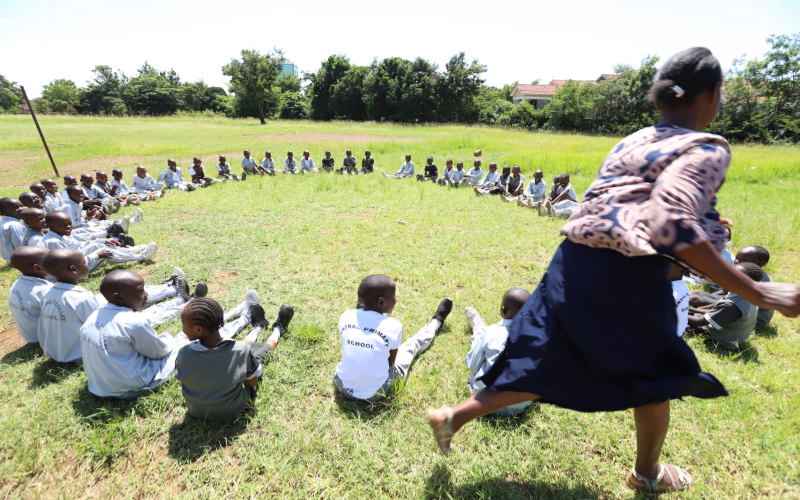×
The Standard e-Paper
Smart Minds Choose Us

Dorcas Odonya takes Grade Three pupils at Central Primary School in Kisumu through a physical education lesson in January last year. [Denish Ochieng', Standard]
Details have now emerged on how teachers will be trained and prepared to help children acquire the right competencies under the new education curriculum.